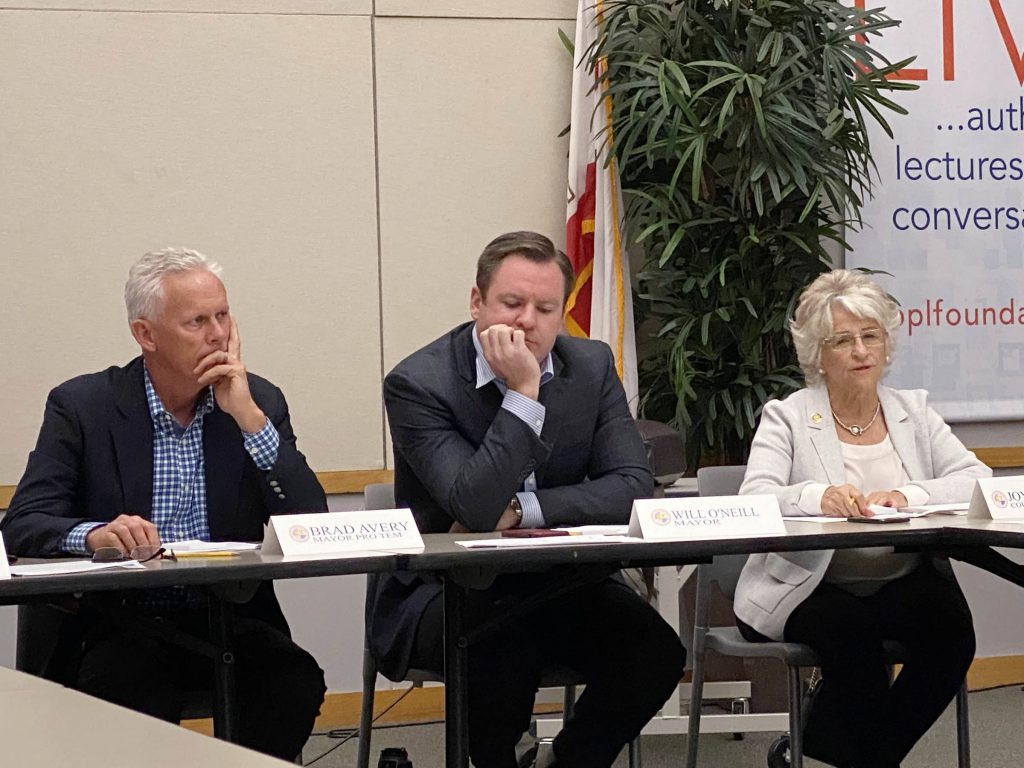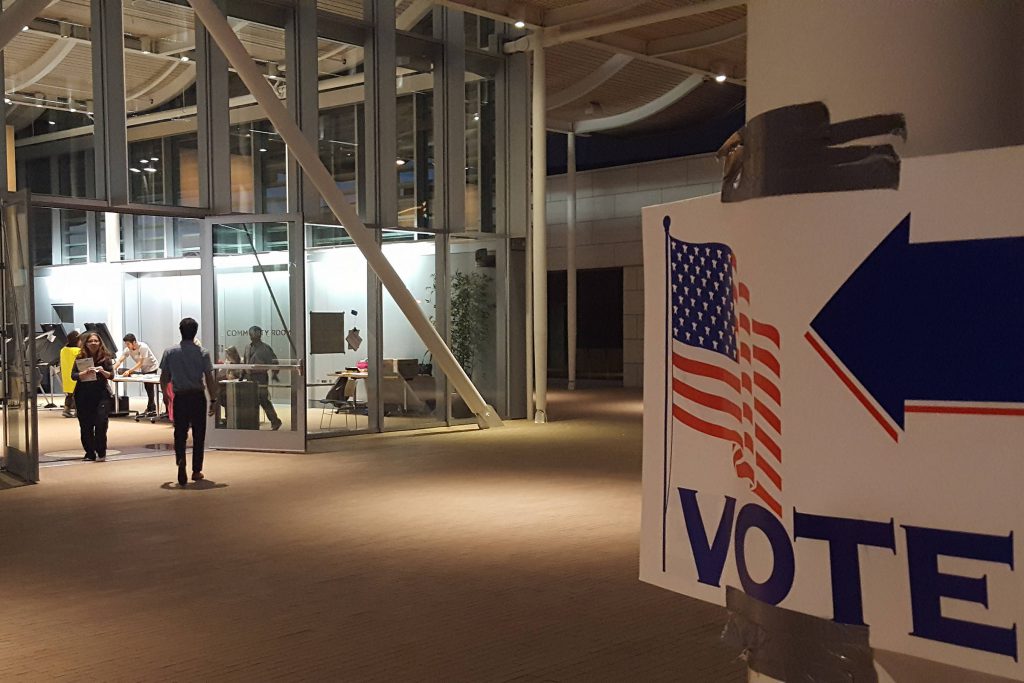The Newport Beach City Council will consider resident-supported revisions to an election reform law that would create the city’s first lobbyist registry, Mayor Will O’Neill said during a meeting this week.
The proposed law would also sanction lobbyists who fail to report their activities in Newport Beach. Steeper fines and suspension of lobbying were among the punishments suggested by residents who attended the informal meeting of the Election Reform Ad Hoc Committee, held in the Friends Room at the Newport Beach Public Library on Monday. The forum was hosted by O’Neill, Mayor Pro Tem Brad Avery, and Councilwoman Joy Brenner.

— Photo by Daniel Langhorne ©
Retired Orange County Superior Court Judge Tully Seymour wrote in a letter to council members the suggested administrative fines for lobbyists who would skirt the law are far too low. The proposed fines are $50 for a first violation, $100 for a second violation within a year of the first, and $200 for a third violation or any subsequent violation within a year of previous violations. A lobbyist or lobbying firm who “knowingly and intentionally” violate the ordinance could be liable for civil penalties up to $5,000 per violation.
“It is obvious that a potential violator would not be deterred from committing a violation,” Seymour wrote. “Violations of the ordinance surely should result in a penalty substantially higher than a parking ticket.”
The proposed ordinance would exempt California-licensed attorneys who meet with city officials on behalf of clients who are or could become a party to litigation or code enforcement proceedings with Newport Beach.
Line in the Sand, a local Political Action Committee, has encouraged its supporters to get involved in meaningful election reform, committee spokesperson Jennifer McDonald said. Line in the Sand PAC members Nancy Skinner, Dennis Baker, and Tim Stoaks were among the two dozen attendees at Monday’s meeting.
Attendees encouraged city officials to model the new lobbyist registry off one already deployed by Anaheim. Lobbyists are required to file quarterly reports that disclose every contact related city business, including the Anaheim official’s name, date of contact, and purpose of the meeting. They’re also required to disclose the total compensation received from a client.
Newport Beach’s proposed registry would require lobbyists to share their name and the clients’ names.
O’Neill said this will be an important first step to educating all council members about whether a person they’re talking to is being paid to lobby them.
“I’m surprised we would model something on Anaheim when we see what’s going on there,” O’Neill said.

— Photo by Christopher Trela ©
Among other issues, the Anaheim City Council has faced criticism over its sale of Angels Stadium and the surrounding parking lots to a company controlled by Angels owner Arte Moreno.
But it’s worth a try, locals said Monday.
“Because there is no perfect system, that’s no reason we shouldn’t try anything,” McDonald said.
Susan Skinner, a board member of community organization Still Protecting Our Newport, said she’s OK with keeping the fee for a first violation at $50, but beyond that, the ordinance needs to have teeth behind it to stop bad behavior. She recommended raising the second violation fee to $1,000 and a third violation fee to $10,000. More importantly, she argues that lobbyists should be temporarily banned from working on Newport Beach matters if they fail to register or report their activities.
Steve Rosansky, president and CEO of the Newport Beach Chamber of Commerce, pushed back on the proposed ordinance.
“Based on the way this ordinance is drafted, if I talk to any council member or city staff for any chamber member then I have to register as a lobbyist for that member,” he said.
O’Neill was reluctant to require lobbyists to disclose each interaction with city officials. If he met with a developer to talk about a Newport Beach project, for example, a document disclosing that meeting could be twisted in campaign mailers, regardless of whether he also talked to the project’s opponents, he said. Such maneuvers could incentivize council candidates not to meet with constituents on both sides of controversial projects.
“It’s a bad idea to give incentives to people not to meet with citizens,” O’Neill said.
Avery echoed O’Neill’s presence for a modest start to lobbyist registration and then change it down the road if needed.
“I prefer to go incrementally,” he said. “Get something done but not go so far that we’re asking too much.”
O’Neill and Avery are up for reelection in November.




